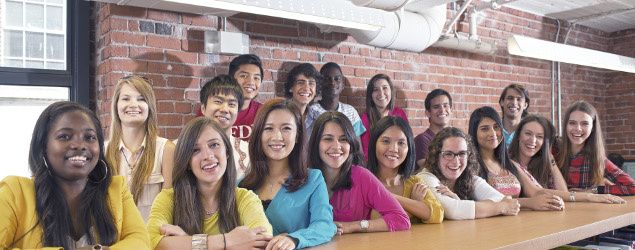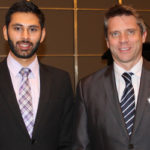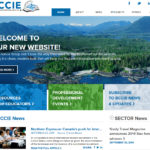Exploring Fairleigh Dickinson University’s Vancouver Campus
Fairleigh Dickinson University (FDU) is a multicampus private university founded in 1942 and headquartered in New Jersey, USA. In 2007, FDU opened its newest campus in Vancouver, BC. BCCIE recently had the opportunity to tour the FDU Vancouver location and meet with some of its key administrators.
Today, FDU is one of the only post-secondary institutions in BC where students graduate with an American degree. The Vancouver campus has over 650 students and offers three undergraduate programs and two professional graduate programs – a Master of Administrative Science and the newly launched Master of Science in Hospitality Management.
An education away from home can still feel like 'home'
FDU has always had a strong international mandate; the Vancouver campus has attracted students from over 70 countries and staff who speak more than 39 languages. Currently students are enrolled from 47 countries.
Located in the Yaletown district of Vancouver, FDU offers state-of-the-art, modern facilities but with a close-knit atmosphere that many students consider their second home.
Because the curriculum is the same from one campus to another, students may study at or transfer to any of FDU’s four main locations, including:
- Madison, New Jersey;
- Teaneck, New Jersey;
- Wroxton, England; and
- Vancouver, BC.
This interchangeability offers students the opportunity to learn about the world from their instructors and classmates while capitalizing on international experience. Student mobility is at the heart of FDU. As Neil Mort, Director of Enrolment Services said, “What really appeals to me about FDU is its vision to prepare students to be global citizens and work and live in a global society.”
Amy Yan, Director of Marketing and Recruitment, echoed this feeling: “We are not concerned just with numbers, but also with quality and diversity – we want to attract students from all around the world.”
Longstanding ties to the UN
FDU has close ties to the United Nations (UN) and NGO status with the UN’s department of Public Information. Many of its faculty sit on standing committees, and students have participated in summer courses or have visited the UN in person.
Being community-minded, FDU opens its UN video conferences to high school students and offers opportunities to sit on model UN parliaments.
Comparisons between private and public universities in BC
FDU differs from larger public institutions such as Simon Fraser University and the University of British Columbia in that it is not government funded. However, Mort emphasized the similarities between public and private post-secondary institutions in BC:
“We deliver the same quality education and curriculum as a larger university. The evidence of this is in accreditations. For example, our business programs are recognized by AACSB, which is the highest level of accreditation for business schools.” The province is also working to eliminate barriers in moving between the public and private systems, for example through the BC transfer system.
Provost Cecil Abrahams said that private universities are a new phenomenon in Canada, although they have been around for several years in the USA. “You do need smaller institutions to deliver more personalized education where students are known by name. We want to keep this tradition going.”
On student retention
FDU works to ensure student engagement. With respect to tuition, scholarships help offset costs. Every student at FDU receives financial support in the range of 25–75% of their tuition over a four-year program. If they have high GPA and SAT scores, scholarships will be in the upper range.
Students who meet academic requirements but need additional English language training can enroll in a Pre-university Pathway that grants conditional acceptance to the University’s programs upon successful completion of academic English courses. Pathways such as these are gaining popularity in BC.
Finally, multiple orientations and workshops cover everything from career planning to counselling and immigration. All students can take advantage of free academic tutoring. “Not to mention we celebrate all cultural festivals from around the world,” Yan said.
Future plans
In the next five to ten years FDU Vancouver plans to continue growing its programs, but does not want to lose sight of its sense of community.
“You can have 50,000 students but if you keep the ‘smallness’ and remember what education really is – a personal giving – then you will not lose sight of what is important. This will remain the foundation of FDU,” said Abrahams.
For more information, visit the FDU Vancouver website or contact Amy Yan at ayan@fdu.edu



